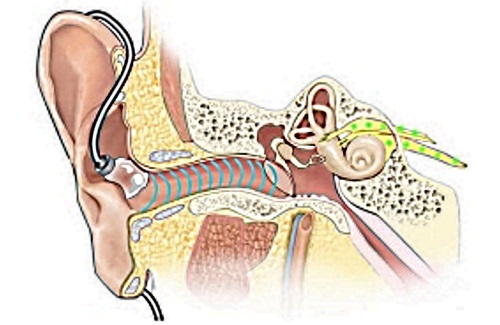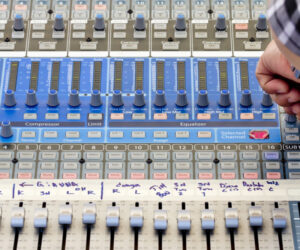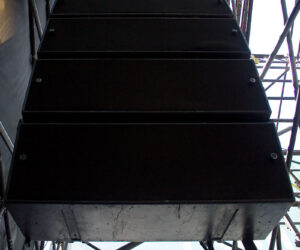One common concern when mixing for long periods of time is ear fatigue. The limits of one’s ears (and mind for that matter) may vary from engineer to engineer, but eventually any engineer’s ears will begin to lie to them.
This can lead to various mixing mistakes and can only get worse as you push on through a session.
There is nothing cool about holding the studio record for the longest mix session, especially if it’s to the detriment of the final mix.
All mixing engineers have their own process for avoiding ear fatigue and with time green engineers should develop their own personal process. For now, here are some tried and true practices that may help.

Know Your Limits
Keep your mixing times within those limits as much as possible.
On average seasoned engineers recommend no more than 8 hours of mixing in a single day. You may find your stamina to be more or less, but until you have really learned your limits don’t push your luck.
If you feel that you’re reaching your limit be honest with yourself (and your client). This is for everyone’s benefit; you, the client, and most importantly the song.
Take Breaks
A short break (5-10 mins) every hour will give your ears time to recover and also help refresh your brain a little.
Every 2-4 hours take a longer break (lunch maybe). Then return to the mix with a clear head and enjoy listening with a fresh perspective. Often you will hear new things in the mix by simply stepping away from it for a bit.
Don’t Mix Too Loud
Keeping your monitors at a reasonable level throughout the mixing process is better for your ears and provides a more accurate perspective on the mix. 80dB SPL (or less) is a good average level for most. Beyond that your ears will fatigue faster and even worse your ears will begin to lie to you.
Change Your Perspective
If available, switch between multiple sets of monitors periodically and see how the mix translates between them. Print a reference mix and take it to the car or home stereo for a quick listen.
Many engineers will listen in mono (maybe even through one speaker) for a new perspective or some may turn around and listen with their back to the speakers.
Get Sleep, Hydrate Yourself, And Eat
As with any job if your body isn’t happy your work will pay the price. Get a good night’s sleep before a big mix day. Drink water and don’t forget to eat at some point. No one works best when they’re hungry or dehydrated.
Read and comment on the original article here.















